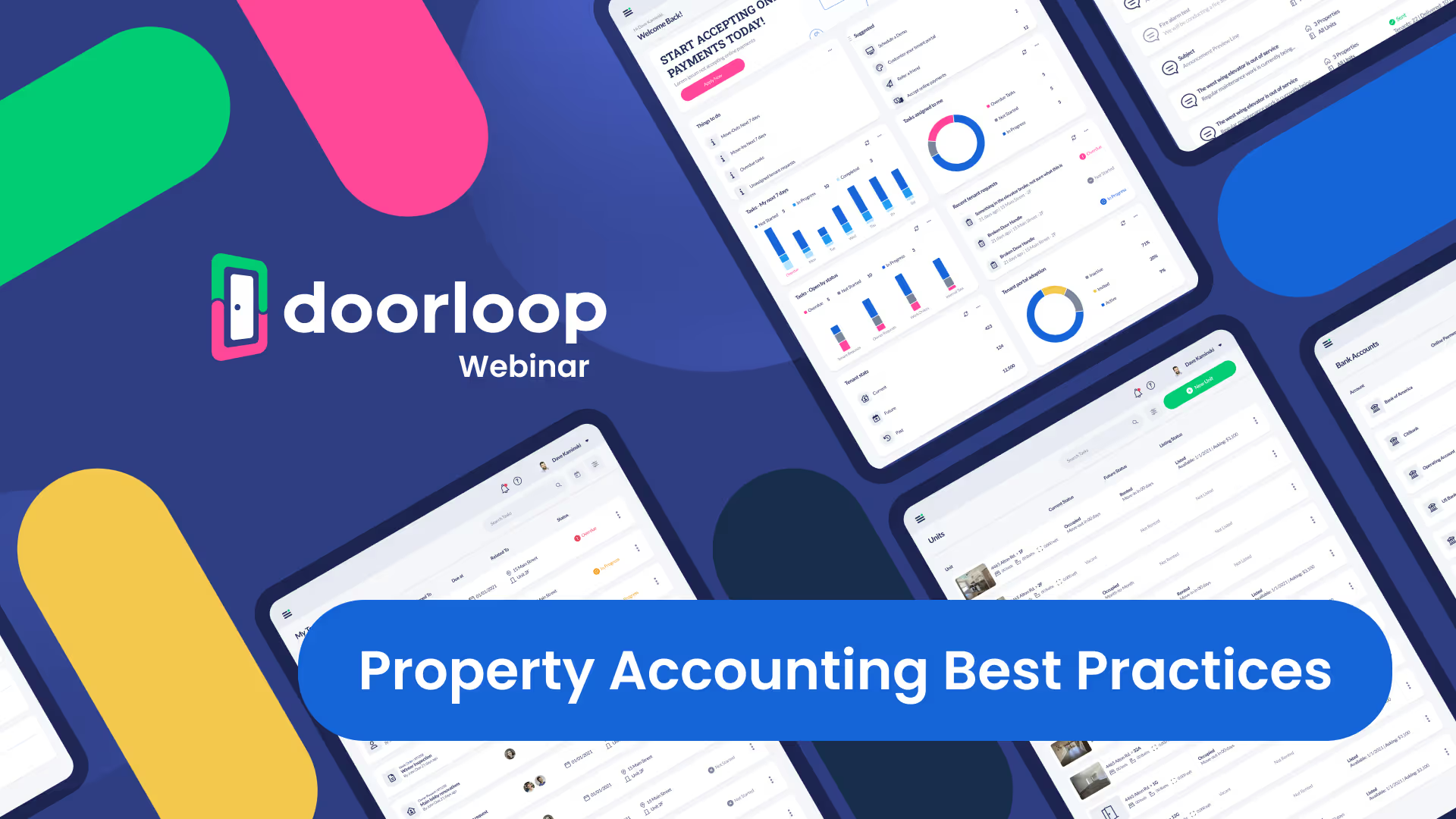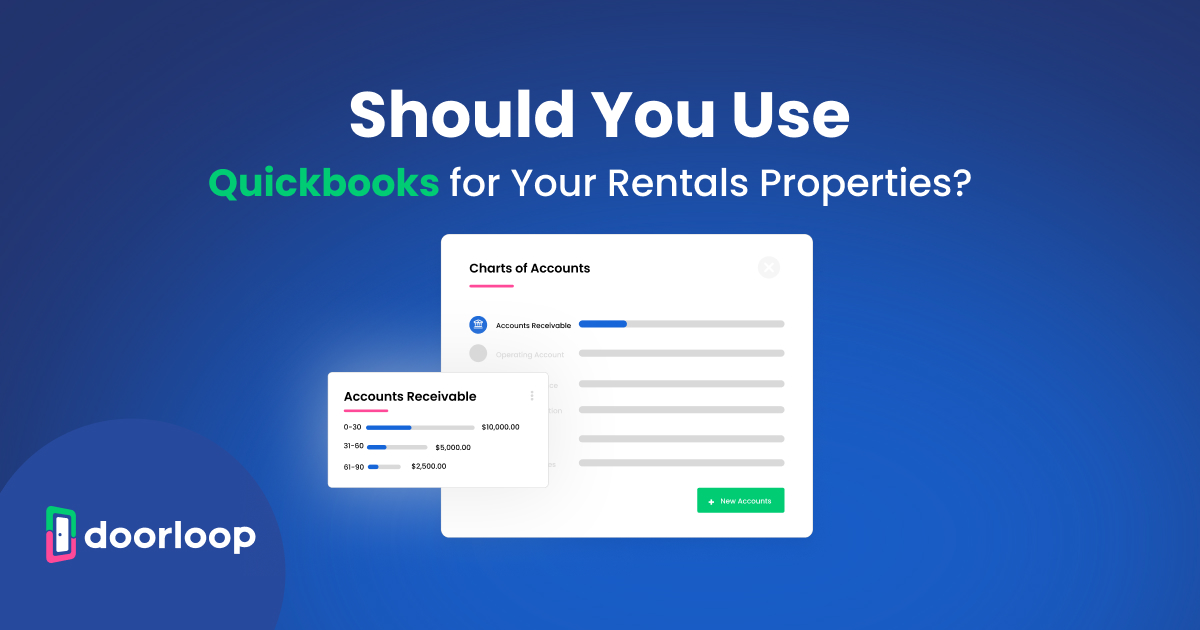This article was auto-generated by AI based on the webinar transcript.
Property accounting can be the cornerstone—or the crumbling foundation—of a property management business. In our recent webinar, “Property Accounting Best Practices: Where Property Managers Go Wrong (and How to Get It Right)”, we sat down with Ramon, a seasoned CPA and founder of RSKPJ Accountants, to uncover the most common pitfalls property managers face and how to fix them.
Whether you're a property owner juggling multiple entities or a property manager trying to untangle your books come tax season, this recap highlights the key insights, actionable takeaways, and top audience questions to help you stay on top of your financials with clarity and confidence.
📘 Download this important resource first:
Real Estate Accounting Definitions Cheat Sheet ›
💥 The Big Problems Property Managers Face
1. Commingling of Funds
One of the most critical and commonly overlooked issues in property accounting is the commingling of funds. Mixing personal and business transactions, or tenant and owner money in a single account, is a red flag for auditors and can result in tax and legal issues.
Solution:
Set up trust accounts and use separate operating accounts for management income and owner distributions. This ensures transparency and compliance.
2. Improper Classification of Expenses
Many property managers aren’t sure whether to classify expenses under maintenance, general supplies, or capital expenditures (CapEx).
Solution:
Ask yourself: Will this item last for years? If yes, it's likely CapEx and should be depreciated. Temporary fixes like leaky faucets? Expense them immediately.
3. Lack of Bank Reconciliation
Skipping bank reconciliations leads to inaccuracies in reporting and can cause issues with owner trust balances, tenant deposits, and tax prep.
Solution:
Use automated reconciliation tools in platforms like DoorLoop to match bank data with transactions. Reconcile monthly to avoid errors compounding.
4. Mixing Property vs. Company Accounting
Property managers often fail to distinguish between what's part of the owner's books and what belongs to the management company.
Solution:
Track these separately—record only earned fees as company income. The rest should reflect in owner financials.
✅ Best Practices & Solutions
- Automate report generation with customized templates to simplify monthly statements.
- Use sub-level accounts per property for clarity and accurate performance tracking.
- Leverage CAM (Common Area Maintenance) categorization for commercial properties to separate reimbursable expenses.
- Track fixed assets and depreciation: Use appropriate IRS schedules to differentiate between short-term repairs and long-term capitalizations.
- Choose your software wisely: DoorLoop offers a full accounting suite tailored to property managers with a QuickBooks Online integration.
📚 Want to dive deeper?
Read our Beginner’s Guide to Property Management Accounting ›
🔟 Top 10 Questions from the Live Audience
1. How should I handle evicted tenants with outstanding balances?
These should be recorded as a bad debt expense and offset with a credit so they don’t appear on active balance reports.
2. How do you lock the year in DoorLoop?
Use DoorLoop’s admin controls to close out previous periods to prevent changes.
3. Should I record gross property income or just my management fees in QuickBooks?
Only your earned fees (e.g., late fees, admin fees) should appear in your company P&L. The rest belongs to owner books.
4. Should I create sub-accounts for each property on my balance sheet?
Yes, it provides better visibility and allows clean reporting, especially when using batch journal entries.
5. Can I lock a previous month in DoorLoop?
Yes. It's not needed, but monthly closings help maintain accurate reporting and prevent retroactive edits.
6. Can vendors upload their own invoices directly into DoorLoop?
This feature has been submitted to the DoorLoop product team! Stay tuned.
7. Can I generate reports for itemized deposits, app fees, etc.?
Yes—DoorLoop’s reporting system allows this. Reach out to support for advanced configurations.
8. How do I categorize tenant turnover costs—supplies or maintenance?
If the work is recurring or short-lived, it’s maintenance. Durable fixes like plumbing or electrical repairs can be categorized accordingly.
9. Should I track all owner books on the balance sheet?
Yes, but avoid duplicating. Use the balance sheet to reflect true ownership flow and rely on management reports for your company earnings.
10. How should I structure entities and pass-throughs for optimal tax strategy?
This depends on your situation. Contact RSKPJ Accountants for a free consultation tailored to your portfolio.
🎓 Final Thoughts
Property accounting isn’t just about compliance—it’s about clarity, profitability, and confidence. Whether you're managing 5 doors or 5,000, these principles will help you avoid costly mistakes and stay audit-ready.
🛠 Want accounting software built just for property managers?
👉 Sign up for a DoorLoop demo
💬 Have complex accounting questions?
Contact Ramon’s firm for a free consultation ›
































.svg)
.svg)

